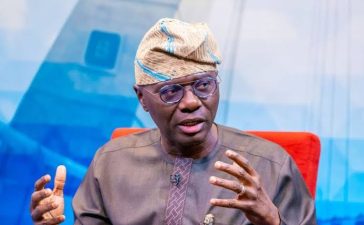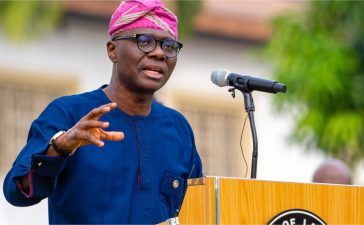Experts in Nigeria’s Financial Sector have emphasized the need for government to tap into the vast potential of long-term financing within the nation’s Capital Market as a means to achieving a steady economic growth of 16 percent annually and attain a projected $1 trillion economy by 2030.
Professor Uwaleke, a distinguished Finance and Capital Market Expert, conveyed this message during the 2023 conference of the Capital Market Correspondents Association of Nigeria (CAMCAN) held in Lagos over the weekend.
Professor Uwaleke highlighted the imperative of linking borrowings to infrastructure bonds to address the widening gap in the nation’s infrastructure investment needs. He stressed that mobilizing long-term financing through the capital market, coupled with directing domestic market borrowings into infrastructure bonds, is critical for achieving the ambitious economic target.
Speaking on the theme, ‘Leveraging Capital Market in Financing The National Development Plan,’ Uwaleke expressed concern over Nigeria’s low rating in terms of infrastructure to GDP among emerging economies.
Despite the creation of the National Integrated Infrastructure Master Plan, which proposes a $3 trillion investment in infrastructure over the next 30 years, he pointed out that the current challenges faced by the capital market are hindering its role in economic development.
The hurdles identified by Uwaleke include a weak domestic economy, poor savings mobilization, the small size relative to the GDP, and market concentration. With the economic growth hampered by overreliance on crude oil and a significant infrastructure gap, he called for urgent measures to leverage the capital market for sustainable development.
Highlighting the grim economic indicators, Professor Uwaleke pointed out the rise in unemployment from 27.1 percent in Q2 2020 to 33.3 percent in Q4 2020. He attributed this, in part, to the negative real rates of return on investments in the capital market caused by rising inflation. The pursuit of low inflation and GDP growth has been further complicated by the substantial infrastructure deficit, which currently stands at only 35 percent of the GDP, significantly below that of peer countries.
In addressing the pressing issue of inflation, which surged to 27.33 percent in October, Uwaleke also emphasized the need to tackle the rising cost of food prices. He identified this as a major driver of stagflation, characterized by high inflation and weak economic growth.
Urging the government to prioritize the revival of the manufacturing sector and agriculture, he sees these sectors as key drivers of sustainable economic growth.







